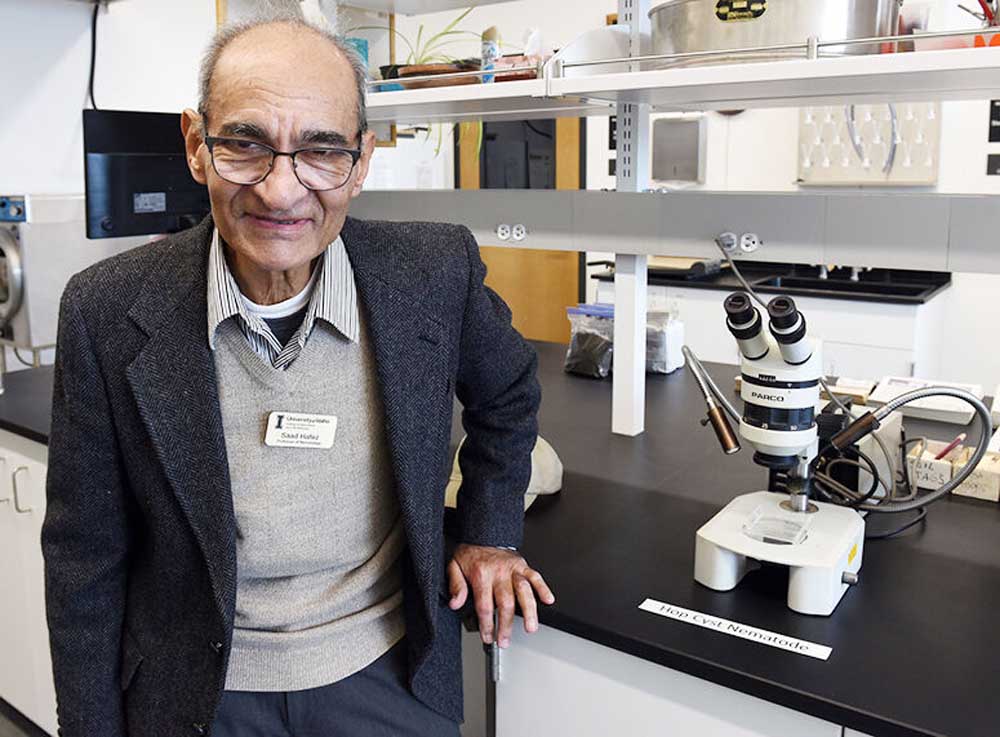UI endowment honors groundbreaking nematologist
Published 2:43 pm Wednesday, October 16, 2024

- Saad Hafez
The University of Idaho has raised more than $3.2 million for an endowment honoring the career of a widely respected nematologist.
The Saad Hafez Presidential Endowed Chair in Nematology was established with donations from the J.R. Simplot Foundation, Amalgamated Sugar Co., McCain Foods USA, the Idaho Potato Commission and the Nyssa-Nampa Sugarbeet Growers Association, according to UI.
The university plans to hire a nematologist to succeed Hafez, who retired at the end of October. Like Hafez, his successor will be based at the Idaho Center for Plant and Soil Health, which opened in late 2023 at the College of Agricultural and Life Sciences Parma Research and Extension Center and includes a nematology laboratory named in Hafez’s honor.
Annual distributions from the endowment will be used at the discretion of the new faculty member for graduate student and research support.
Establishing the first presidential endowed chair signifying an endowment of at least $3 million “not only affirms our commitment to academic excellence, but also strengthens our ability to attract and retain distinguished faculty members who are leaders in their fields,” UI president C. Scott Green said.
The ability to identify nematode species and develop control practices to address the issues they pose is critical, according to UI. While some of the microscopic worms cause considerable harm to crops, others benefit soil health, feed on parasitic insects and may be used as tools to boost management programs.
Nematodes first arose as an issue in Idaho in 1976, when plant-parasitic root-knot nematodes were found to be widespread in soil survey samples. Hafez led UI in establishing its first nematology laboratory in 1981.
In 2006, he discovered pale cyst nematodes in potato dirt samples from the Shelley area — marking the first discovery of the destructive pest in the U.S. The discovery enabled USDA to establish a quarantine and eradication program addressing the threat and protecting important trade markets for the state’s potatoes.
Nematodes present “real and significant production challenges” for Idaho’s growers of potatoes and sugar beets” and can be a pest of concern in potato export markets around the world, said state Department of Agriculture deputy director Lloyd Knight.
Research to help growers manage and eradicate nematodes is “essential in ensuring the success of Idaho agriculture and our ability to export our famous potatoes around the world.”
The program to date has reported 32 genera and 117 species on 31 unique host plant species from 21 counties.







